Tips to Successful Corporate Events and Case Studies
2022.08.22
When you hear the words “corporate event,” what kind of event do you think of? From live concerts, exhibitions, sports games, fan festivals, and Academy Awards ceremonies, there are a wide variety of events, but among them, events that are organized and promoted by companies are called “corporate events”.
Many of you reading this article may be in charge of corporate events or are considering holding corporate events in the future.
However, it is difficult to find information “from the organizer’s point of view,” such as the purpose, types, and methods of holding corporate events.
So today, we would like to talk about “Corporate Events”.
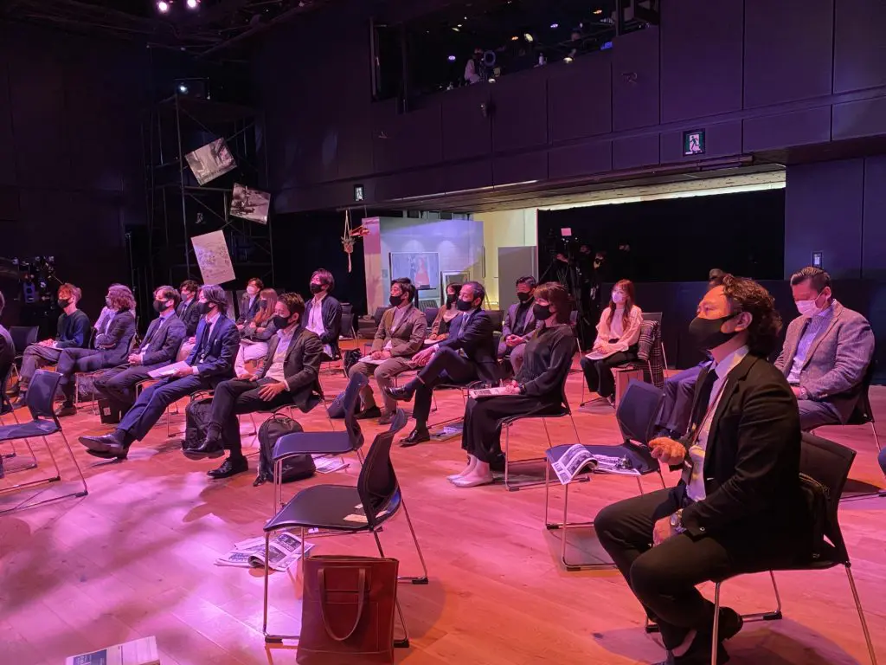
Purpose of Corporate Events
What is the purpose of a corporate event in the first place?
Of course, it varies from event to event, but its direction can be largely divided into “events for the general public” and “in-house events”.
Objectives of events for the public
Many of these events for the general public are intended for advertising and branding purposes. Sports games, live performances, concerts, and other events may seem at first glance to be products in themselves, but they also contain advertising elements in the sense that they increase the number of the brand’s exposure while encouraging them to attend the event, also for them to purchase music, or joining their fan club.
Each company is working hard to make the event a success for the general public, as it is closely related not only to product sales, but also to gain corporate recognition and branding.
Objectives of in-house events
In the case of in-house events, the main objectives are to “increase employee motivation” and “improve employee skills,” which is a complete change from events for the general public. For example, at the kick-off event at the beginning of the term, employees learn the skills necessary to achieve the goals and also the company’s philosophy. At the awards ceremony, we raise motivation by honoring those who have achieved significant results during the term. In addition, including exchange-related content in internal events will encourage employees to communicate more deeply with each other, which will strengthen the sense of camaraderie.
Humans are emotional creatures. There is no such job that automatically makes you do your best all the time. Measures to motivate employees are essential for the growth of a company.
Corporate Event Types and Examples
Some people may not have a clear idea of what exactly a “corporate event” is. Here are some rough examples of corporate events.
Publicly Open Events
Promotion events (new product launches/press conferences)
PR events such as new product launches and press conferences are widely known as corporate events. The first one that comes to mind is Apple’s annual product launch. Other examples include events such as Pro sports kickoff conferences, where the media is invited to make various announcements, and limited-time pop-up stores where samples of new products are distributed. Most corporate events open to the public are usually PR events.
In the past, they were mainly simply designed and intended only for the media, but now they are increasingly available online for also the public to see. Accordingly, both real and online PR events are becoming more elaborate to look good, and this trend is expected to intensify in the future.
Award Ceremony
Another popular type of corporate event is an awards ceremony. This refers mainly to the Academy Awards, the Music Awards, and the Design Awards, which are selected from a pool of candidates that transcends the boundaries of a company. The award ceremonies themselves are often lavishly decorated and elaborately staged, as they are often linked to the branding of the sponsoring company and the industry itself.
Conference
Conferences are becoming more and more common these days. Conferences here means “large scale, informative events that deal with unique information,” such as those held by software and service companies such as Adobe to present how their services can be used, by specialized companies to convey specialized information to people in the industry, or by the general public to raise the recognition of the industry. There are also cases where specialized companies hold events to convey specialized information to those involved in the industry, or for the general public to raise the recognition of the industry.
Shareholder Meetings
For publicly listed companies, the shareholders’ meeting is also considered a corporate event. Although it is not completely open to the general public, as participants are limited to shareholders, it is an event that companies want to focus on because it is an opportunity to provide information externally, the information disclosed at the meeting is likely to be reported in the press.
In-house Events
Kickoff meeting, Employee Meeting
Both the Kickoff Meeting and the Employee Meetings are events held at the beginning of the fiscal year. In many cases, they are internal events attended by all employees, and in some companies the number of participants can be in the thousands. It is an important opportunity to communicate to all employees at once the sales goals and the company’s vision for the coming term, and often a top presentation is given by the company’s top management.
Award Ceremony
It is an in-house event held mainly at the end of the fiscal year to recognize employees who have performed well during that period. For companies, it is an important event with a variety of roles, such as raising employee motivation, sharing knowledge for growth, and stimulating internal communication. Because of the character of the event, not like the many events held on a regular basis, and award ceremonies are heavily decorated full of content and celebrative programs.
Yearend party
This is an all-employee event held at the end of the year or fiscal year, and is the counterpart to the Kickoff Meeting and the Employees Meeting. In many cases, it is held at the same time as the “Award Ceremony” mentioned above. As the name suggests, the purpose of this event is to honor and reward the employees for their efforts during the year and to encourage them to look forward to the next year.
Anniversary Events
These are large-scale events held to mark corporate milestones, such as the 50th anniversary of a company’s founding. Although often held as an internal event, some companies actively communicate information to the outside world by selling commemorative products or creating promotional PV, as the fact that the company has existed for a long period of time is itself connected to branding.
For example, we tend to create anniversary logos for anniversary projects, or create brochures to promote the corporate identity or philosophy.
Sports Events
This is a real event held to promote interaction and unity among employees. Although it is on the decrease due to the Corona disaster, it is well known as an event that is different from other events in that it is physically active, and there are no presentations or seminars. Another feature of this event is that it has a strong team-building component, with teams formed across department and branch boundaries and everyone working together.
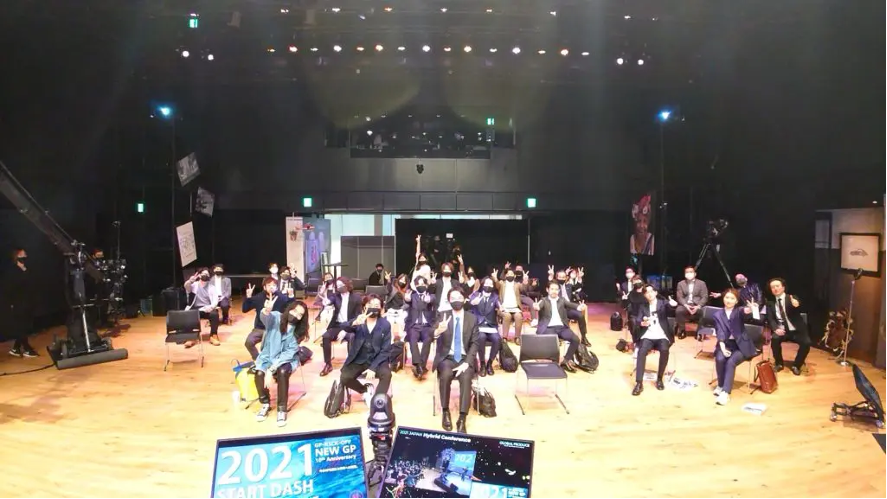
Secrets to a Successful Corporate Event
There are many different types of corporate events. However, there are a number of common secrets to success. Here are four keys to success.
1. Clarify objectives
First and foremost, clarify “the purpose” of the event. Corporate events tend to be large in scale and number of people involved, so it is very important to steer the event in the right direction. By deciding on the purpose of the event at the very beginning, all parties involved will always be able to ask, “What is the purpose?” and “Is what we are doing now in line with the objective?
2. Thoroughly “identify information before planning” such as scale, responsibilities, budget, etc.
As with objectives, the first thing to be identified is the framework of size, responsibilities, and budget. This framework is what we call the decision-making criteria. When planning a project, it is easy to get greedy and want to “do this and do that,” or to try to cram in as many ideas as possible. At this point, if there’s a criteria for judgment, you can calmly look back and ask yourself, “Is this really possible? It is precisely because the scale of the project is so large that it is essential to establish criteria for every judgment made at each stage.
3. Communicate rapidly regarding progress
One of the characteristics of corporate events is that they require a long preparation period before they are held. It can take at least several months, and in some cases years! In addition, corporate events are conducted in cooperation with various companies, such as planning companies, distribution companies, and others. Therefore, compared to a short-term, in-house event, there is a high possibility that a slight misunderstanding or miscommunication will lead to trouble. Keeping in constant contact with each other and checking on the progress of the project will have the effect of strengthening the relationship of mutual trust, so be sure to keep in touch with each team frequently.
4. Provide opportunities for attendees’ feedback
When planning a corporate event, it is easy to forget to ask for feedback such as surveys. However, feedback is absolutely essential for corporate events. Feedback is the most reliable means of confirming whether or not the initial “objective” has been achieved. In a sense, the success or failure of an event is determined by the feedback. In addition, knowing how the participants felt will help you brush up your event from a third-party perspective, which will also give you hints on how to hold a better event.
FAQ for Corporate Events
As an event production company, we receive inquiries from a wide variety of corporate events. Here are some of the most common and important issues we receive questions and inquiries about, answered in a Q&A format.
Q. Where do I start?
First, let’s identify the purpose, scale, timing, budget, and other things you are able to clarify before planning. These factors are the first questions you will be asked when hiring an event company. Also, once you have a clear idea of what the event will look like, it will be easier to make various decisions.
Q. When should I start working on it?
Assuming you hire an event company, you will need at least three months, depending on the size of the event. For an in-house event, it is best to assume that it will take even longer than that due to the additional work involved.
Also, please note that it is not unusual for an event to require a one-year wait for a venue with more than 1,000 people.
Q. How do I hold an online event?
Today, anyone can hold an event online using online conferencing tools such as Zoom and Teams. The advantage of using a familiar tool is that participants can participate in online events without any confusion.
However, when using online conferencing tools and hosting an event solely with your company, problems are bound to occur, such as unstable connections and poor image quality. If problems occur on the day of the event, the success or failure of the event itself may be at stake if there is no staff within the company who can respond immediately. Especially when the size of the event exceeds several hundred or several thousand people, or when higher image quality is required, it is safer to hire a video distribution service company or an event company.
Q. Ideas getting stuck in a rut
If you just pull ideas out of your own head, you will inevitably be limited in the range of ideas you can come up with. It is easier to generate new ideas if you keep your antennae up and absorb information by reading books on events, visiting events that are being held, and researching similar events.
Also, if the same members have been working together for a long time, ideas will inevitably become similar. It is recommended that the members be replaced for regularly scheduled events, and that the objectives of events be reconfirmed and reviewed at the time of event planning, so that new ideas can always be introduced.
Q. I want to set a budget, but what will it cost?
When determining the budget for a corporate event, the following items are absolutely essential
1: Venue costs
2: Technical (sound, lighting, etc.)
3: Venue decoration
4: Photography
In addition, there will be costs for participants’ transportation and lodging for real events, and for CG production and video editing for online events. Food and beverage expenses will also be incurred if a reception or gala party is held.
Q. What do I have to do to prevent Covid infection?
Due to the new coronavirus infection, “infection control measures” are no longer optional for both real and online events. The basic concepts of social distance, hand sanitizing, wearing masks, etc. remain the same for both types of events, but since the number of people gathering at a real or online event varies greatly, it is necessary to take measures that are appropriate for each.
For Real Live Events
For a real event, the first step is to figure out “how many people can enter the venue with social distance”. It is not unusual for the number of seats to be less than half the number of the maximum capacity. Also, care must be taken regarding the provision of food and beverages for the reception.
When a large number of attendees gather at the venue, conduction lines must also be checked. A temperature check and hand sanitizing area should be set up before the registration desk to ensure that there are no omissions. Also, it is necessary to take measures to avoid queues during the waiting period, such as staggering the entrance time.
For Online Events
For online events, the number of people gathering at the venue is limited, so there is no need to arrange reception lines and other necessary arrangements as for a real live event. However, attendees will still gather at the venue even if it is a video recording or live broadcast, so be sure to disinfect and test temperatures at the venue. In some cases, strict companies require contestants to undergo PCR testing.
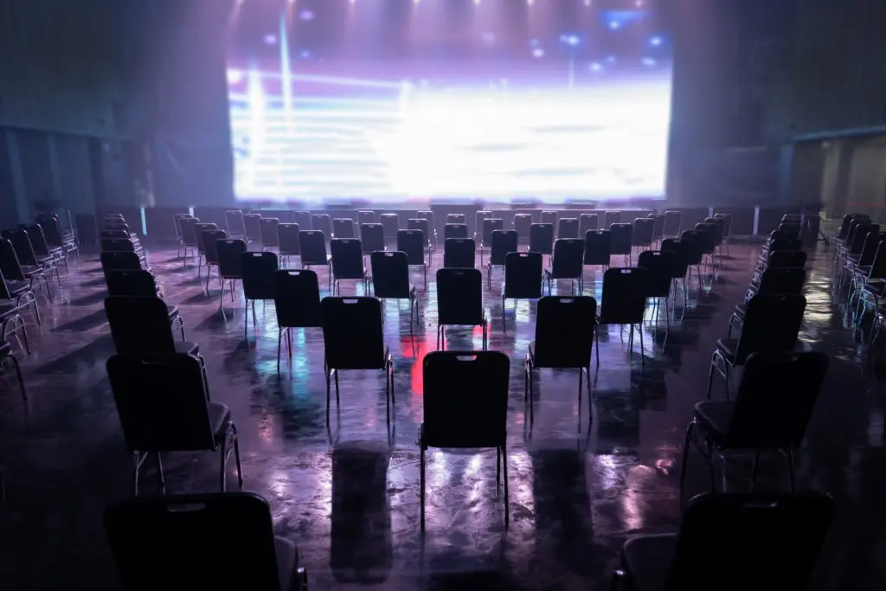
When hiring an event company for your corporate event
Up to this point, we have provided you with a variety of information on corporate events.
Perhaps many of you reading this article are wondering, “Should I hire a planning company to organize my corporate event or should I hold it in-house?
There is no correct answer to this question. The answer depends on the scale, characteristics of the event, budget, and other factors.
However, if there is one thing we can say,
If you hire an event planning company, you will have a “team 100% committed to the corporate event.
Many corporate events are large in scale, long in duration, and important to the company. However, even though they are important, companies that do not have a dedicated department may find it difficult to fully commit to the event because the planning is done in between their core business.
When an event planning company is hired, the corporate event moves separately from the core business. They can be entrusted with arranging the venue and various administrative tasks, and since they have the knowledge to manage the event, you do not have to worry about venue conduction, programming, distribution, and so on.
From these points of view, if you want to have a solid, high-quality event, it is recommended that you hire an event planning company.
Contact Global Produce for corporate events
Event planning companies have their own characteristics and areas of expertise. Some companies specialize in PR events such as pop-up stores, while others specialize in large-scale events attended by tens of thousands of people.
When choosing an event company, it is recommended to check whether the company specializes in the event you want to hold and how much experience they have in holding such events.
Global Produce specializes in concept work based on careful interviews with our clients, and stage production based on this concept work.
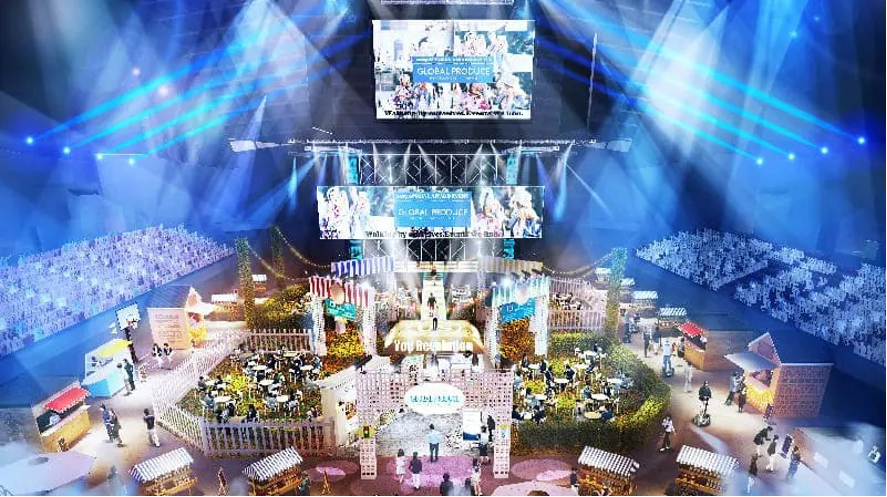
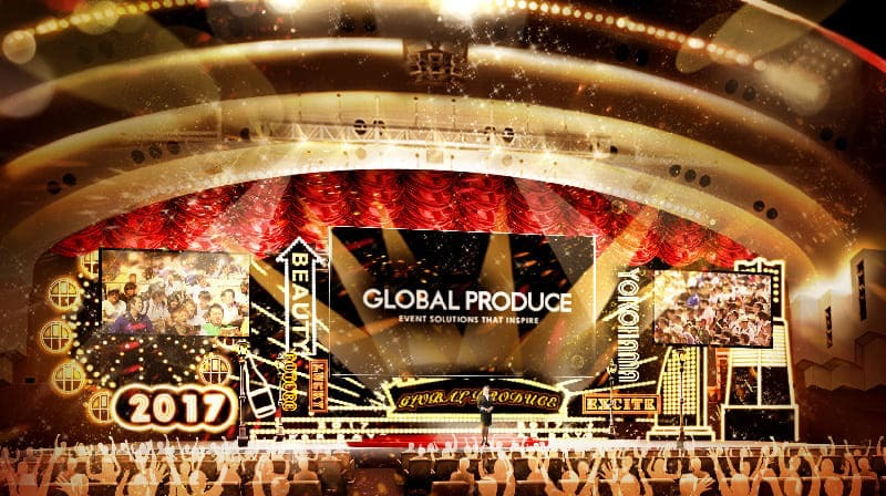
We also pioneered online events at the beginning of the new Corona pandemic, and have experience holding hybrid events that are a cross between online, real events, and a combination of the two. We have also organized several online company events attended by thousands of employees.
We want you to work with us from a vague image to the planning stage.
We want to create events that get better results, both in real life and online.
We want to inspire and motivate employees with an emotional event.
If you have any of these requests, please contact us!
